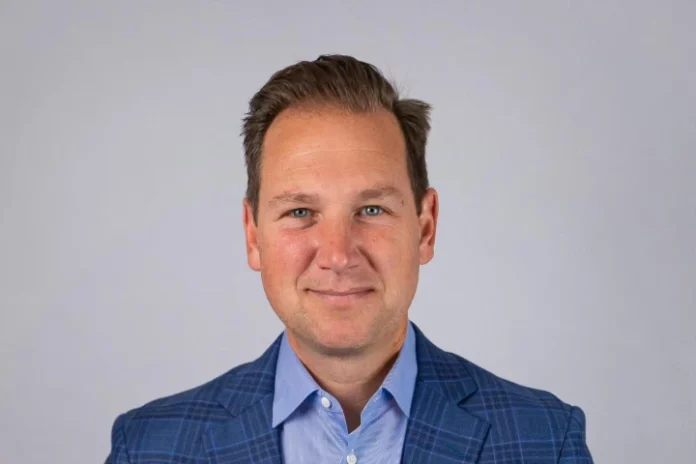In a move that has raised eyebrows across both political and religious circles, Donald Trump announced on December 22, 2024, that Brian Burch would be the next United States Ambassador to the Holy See. The Holy See, commonly known as the Vatican, is the governing body of the Roman Catholic Church, led by Pope Francis.
“I am pleased to announce that Brian Burch will serve as the next United States Ambassador to the Holy See,” Trump wrote on his social media platform, Truth Social.
Trump, who has always been vocal in his support for conservative values, went on to describe Burch as a “devout Catholic,” who has made significant contributions to Catholic advocacy in the United States. He also praised Burch for his leadership role at CatholicVote, one of the largest Catholic advocacy organizations in the country.
The President-elect highlighted Burch’s impact in the 2024 US elections, claiming that the new ambassador had garnered more Catholic votes than any other presidential candidate in US history. “Brian loves his Church and the United States – He will make us all proud,” Trump stated.
The appointment comes at a time of heightened tensions between the Vatican and certain conservative factions within the Church, particularly regarding Pope Francis’ progressive stances. Burch is well known for his outspoken criticism of Pope Francis, who has led the Vatican since 2013.
Burch’s tenure at CatholicVote has been marked by his strong support for traditional Catholic teachings. However, he has also been a frequent critic of Pope Francis, especially over the pontiff’s approach to social issues and his more inclusive stance on topics such as LGBTQ rights. Burch has repeatedly expressed concerns that the pope’s liberal policies have caused confusion within the Church and that they may undermine its traditional values.
One of Burch’s most vocal criticisms came after Pope Francis’ decision in 2023 to allow priests to bless same-sex unions. This move, which was part of the pope’s broader push for inclusivity, sparked significant backlash from conservative Catholics like Burch. He accused the pontiff of leading the Church down a path that contradicts traditional Catholic teachings on marriage and family.
“His actions are causing confusion within the Church,” Burch stated after the announcement. “We need a pope who will clarify these uncertainties and return to the core teachings of the Catholic faith.”
This decision was particularly controversial as it came during a time of rising debates within the Church about its stance on LGBTQ rights, with many conservative Catholics fearing the pope’s actions could pave the way for further liberal changes. Burch, who has long been an advocate for traditional Catholicism, has been vocal about the need for the Church to return to its doctrinal roots.
Despite the tensions with the Vatican, Burch has expressed a deep commitment to both his Catholic faith and his role as a representative of the United States. On his social media platform, X, Burch noted that the Catholic Church is the “largest” and “most important” religious institution in the world. He also emphasised the importance of the US-Vatican relationship, stating that it is vital to the global good.
“I look forward to working with the leaders of the Vatican and our new administration to uphold the dignity of all people and advance the common good,” Burch wrote.
The Vatican, while not officially commenting on the appointment, has a long history of working with US ambassadors. The relationship between the Vatican and the United States is one of significant importance, especially on issues related to global diplomacy, human rights, and international peace efforts.
However, Burch’s appointment signals a potential shift in the US-Vatican dynamic, particularly given his criticism of the pope. The Vatican, led by Pope Francis, has often been a strong advocate for social justice, environmental issues, and global peace. His progressive stances on issues such as climate change, poverty, and refugee rights have often put him at odds with more conservative figures in the Church and in global politics.
Some critics argue that Burch’s appointment could further strain the relationship between the Vatican and the US, particularly if he continues his vocal criticism of Pope Francis. Others, however, believe that Burch’s appointment could help bridge the gap between conservative Catholics in the US and the Vatican, providing a new avenue for dialogue on the Church’s direction.
The Vatican has often found itself in the midst of political and ideological divides, with factions within the Church pushing for either more traditional or more progressive policies. Pope Francis has worked to balance these opposing forces, often emphasising mercy, compassion, and inclusivity. However, his critics, like Burch, have expressed concerns that his leadership has created divisions within the Church, especially among the faithful who are wary of his more liberal approach.
Burch’s appointment also comes at a time when the Vatican is facing internal challenges, with some questioning the pope’s health and ability to continue in his role. Pope Francis, who is now 88 years old, has often been the subject of speculation regarding his future. Some believe that the pope’s time in office may soon come to an end, which could pave the way for a new leader who may take a different approach to the Church’s direction.
In response to his appointment, Burch has expressed his gratitude and commitment to the position. “I am honoured to serve the United States in this role,” he said. “The relationship between the United States and the Vatican is of vital importance, and I will work to ensure that we continue to build a strong partnership based on shared values.”

